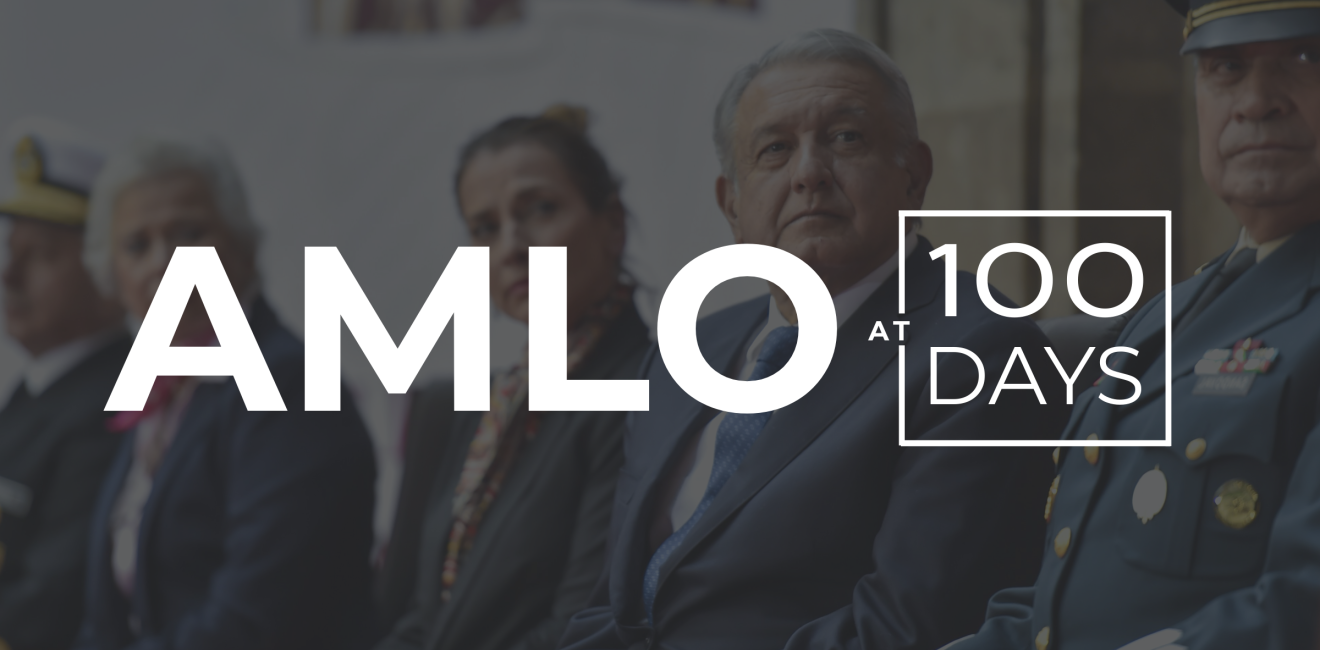AMLO at 100 Days in Office
A commentary on President Andrés Manuel López Obrador's first 100 days in office.
A commentary on President Andrés Manuel López Obrador's first 100 days in office.

Andrés Manuel López Obrador enjoys the support of millions of disenfranchised Mexicans who see him not only as “the president,” but rather as “our president,” in sharp contrast with many of his predecessors, who catered to the interests of the rich and powerful and despised ordinary Mexicans. I would highlight three salient features of his government:
First, the expectation for real change. There is a high hope that the government will be cleansed, that the economy will meet the needs of the majority of the population, and that Mexicans will go back to having peace and tranquility in their everyday lives. People trust the decisions AMLO has made, in spite of increasing skepticism from experts and credit-rating agencies. Alas, the expectation for real change may be greater than the new government’s ability to actually deliver the goods.
Second, only three months into office, it has become evident that the long-standing stagnation of investment—and specifically of public investment—will make it very hard for the economy to grow at a pace that will generate sufficient revenue to pay for AMLO’s priority projects. He relies on private investment to achieve 4 percent GDP growth per year but, in any event, a thorough fiscal reform looks as a must come 2021. Any fall in economic growth in the United States will hurt the outlook for Mexico—let alone a (God forbid) non-ratification of the USMCA or a denunciation of NAFTA by the Trump administration.
Third, this is not merely a change of government. In his own words, López Obrador embarked upon regime change. No wonder he calls his administration the 4th Transformation, following suit on the Independence, the Reform, and the Revolution. In light of a weak partisan opposition and a civil society that is being maligned from the government as a mere intermediary between the leader and the people, the big question is whether the Mexican State will replace its social justice responsibilities with individual cash transfers generously dispensed by López Obrador himself, which no doubt gave him an edge at the ballot box.
Although it remains to be seen whether the nationalist economic policies with a social inclusion emphasis will actually benefit the majority of Mexicans, as of today, López Obrador is not only given the benefit of the doubt, but is also widely considered the only one who could bring a major shakeup to the corruption-laden political system and steer the government to work for the people.
That is no small feat amid the longstanding, deep skepticism of Mexicans in our governments.


The Mexico Institute seeks to improve understanding, communication, and cooperation between Mexico and the United States by promoting original research, encouraging public discussion, and proposing policy options for enhancing the bilateral relationship. A binational Advisory Board, chaired by Luis Téllez and Earl Anthony Wayne, oversees the work of the Mexico Institute. Read more



